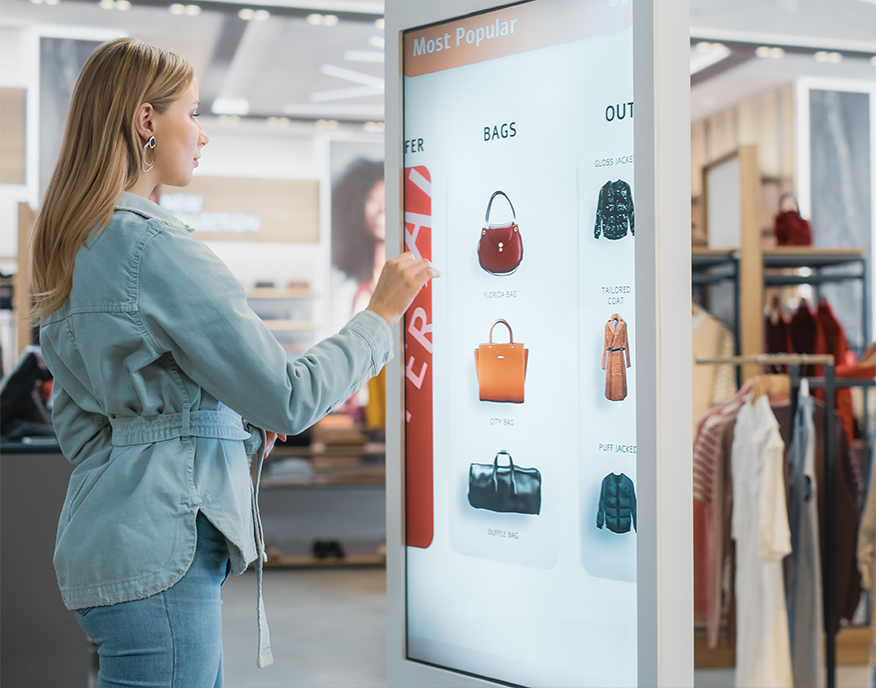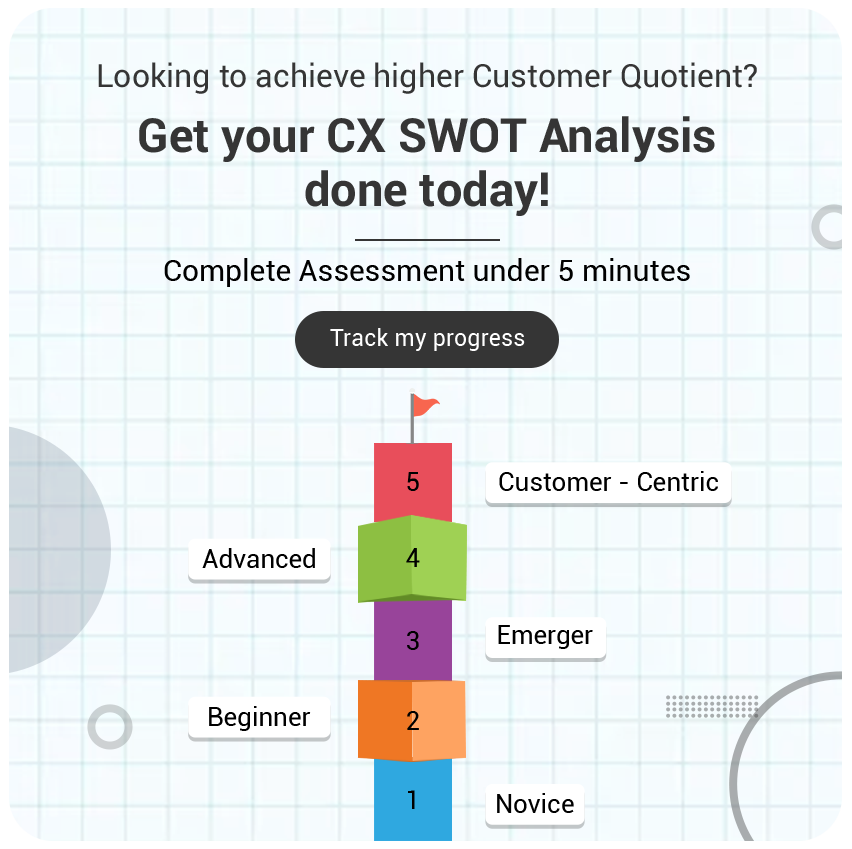Technology Decoded
Simplifying Tech for Retail Industry

The Retail
Tech Conundrum
Brace yourself for the unimaginable in the retail space. New-age technologies will significantly impact the markets, models, and mechanics of consumers. As per a report by Deloitte, the consumer industry is currently facing a once-in-a-century economic, social, and technological transition.
Retail businesses both online and offline not only need to navigate through this change but also find sustainable ways to grow. Adapting to change is never easy. Though technology has simplified our life, multi-fold retail business owners grapple with multiple challenges while integrating technology into their businesses. What are these challenges? Let’s find out.
Complexities in
Tech Modernization

Before diving deep into the tech advancements, let’s get familiar with some most common tech jargons.
Decoding the Jargon
Demystifying Key Retail Tech Terms
Here are some tech terms to bridge the knowledge gap between you and the ever-evolving tech world in the retail industry.


CRM: Customer Relationship Management System
A robust customer lifecycle management solution gives overall visibility of leads, real-time customer engagement, easy inventory management, and a dashboard to manage custom loyalty programs.

Omnichannel approach to provide unified customer experience

AI for personalization, recommendations, and analytics
AI’s ability to understand data and identify patterns to cater to the needs of customers is transformative for the industry.
Hyper-personalization
A whopping 63% companies witnessed an upsurge in conversion rates following the implementation of personalization strategies. Targeting the entire audience with the same message is not relevant today. AI gives you the power to target every customer and provide a one-to-one shopping experience. One of the examples of providing personalised support is AI chatbots. A Statista report reveals how 64% of businesses trust chatbots to provide personalised customer support rather than regular customer service.
Recommendations
AI tools are capable of identifying and recommending products based on location, purchase history, and customer’s lifestyle. It has the power to understand what is relevant to the customer and recommend products/services accordingly. It is helping businesses to optimise user satisfaction and minimise cart abandonment. Now, customers no longer have to scroll through a long product list to get the preferred product.
For example: If someone buys pet toys, AI tools automatically share a recommendation for pet food. It is not only making the experience hassle-free but also making the entire buying experience intuitive.
Analytics
AI gives a comprehensive view of customer behaviour across various touch points. AI tools have the ability to find hidden patterns to tailor strategies. These tools can track interactions and influence a customer's buying behaviour and interaction with brands. For example, AI-based tools are able to do segmentation based on demographics and behaviour and create personalised campaigns for different segments.

IoT: Internet of Things
This can be the future of shopping using IoT! Isn’t it exciting?
The concept of the Internet of Things (IoT) is to connect devices to both the Internet and to one another. 51% of firms use IoT to gain better insights into customer’s needs, preferences and behaviour. Today, using the Internet of Things (IoT) retail businesses can simplify inventory management, supply chain optimization, customer experience, theft prevention and security, etc.


Use cases of IoT

Advanced Inventory Management
Integrating IoT devices, and inventory management has become easy and efficient. For example: smart shelves with sensors. These smart shelves detect the motions of the products, and when the products are added or removed, they update the dashboard. Also, it notifies to fill the inventory when restocking is required. For example: One of the notable brands uses IoT devices to track the movement of goods throughout its supply chain. The data also helps them to optimise transportation routes, and prevent fraud.

Enhanced customer experience
IoT devices help you take customer experience to another level. IoT sensors and cameras analyse customer movement and interactions with products in the physical stores. Using behaviour analytics, brands can tailor store layouts to make a more convenient shopping experience.

Cloud computing: Achieve data security and better supply chain visibility
Redefine security
Cloud provides a secure environment for retail businesses. As the retail business receives a heavy amount of data, its primary goal becomes to protect that data. Using advanced firewalls, data encryption techniques, and security measures, cloud technology promises improved data security.
Better supply chain visibility
Retail businesses are using cloud computing to have better visibility of the supply chain. Using cloud technology, all the departments can access real-time updates on the inventory. It helps them manage the inventory of multiple stores at different locations. According to an Accenture study, 41% of all executives said the desire to increase supply chain efficiency was one of the top-three reasons for migrating their supply chains to the cloud.

71 percent of consumers say that the speed of service, checkout experience, and delivery options are important to stay loyal to a retailer. Using tech-backed POS systems, retail businesses can establish a single view of customers, inventory, and orders. POS platforms can elevate customer experience by streamlining checkouts and simplifying payment processes.
70% of customers engage more frequently with retailers whose loyalty program they participate in. Loyalty programs are one of the proven ways to engage with customers. Technology solutions such as Zence aids you with personalised offers, loyalty programs, and targeted communications.
Understand your customers and personalise their experience using data analytics tools. Optimise product performance using in-depth insights. Increase campaign effectiveness using the overview of a customer journey and behaviour. For example: One of the high-end brands uses the data it gathers through customer interactions to create and share insights across the business. Using data analytics tools, different departments such as HR, finance, retail, and supply chain facilitate more intelligent decision-making.
Repetitive tasks such as processing customer documents, invoices, and shipping receipts can consume a lot of your time. Using automation tools, retailers can streamline their processes, save valuable time, and allocate resources more effectively.
Do you feel the Tech FOMO?
Do you think it is actually possible to future-proof your business with technology?
Maybe, yes Or maybe, no! But, certainly, you can find the best solution providers that help you adapt and foster new trends and help unleash your growth. Become more responsive toward new technologies to enable the scalability of your business. Laying a strong tech foundation in retail business can accelerate time-to-market for offering and, therefore, helps in increasing revenue.
Building a Tech-Savvy Retail Team
Here are a few significant advantages of building a tech-savvy team
-Equipping associates with analytics tools to refine sales strategies
-Training sessions for teams on new-age technologies, tools, and strategies to improve efficiency, productivity, and performance
-Tech-savvy employees analyse customer’s needs and derive new ways to provide better customer experience
In a nutshell
The right technology tools have the power to transform your retail business. From the increased use of AI to the integration of CRM systems with other technologies, businesses will be more efficient in delivering personalized and connected experiences to their customers than ever before.
